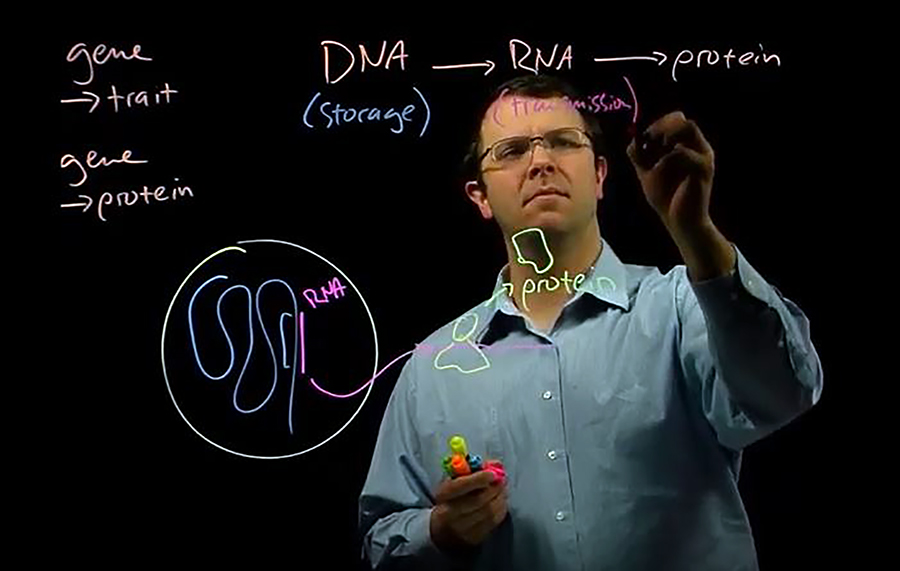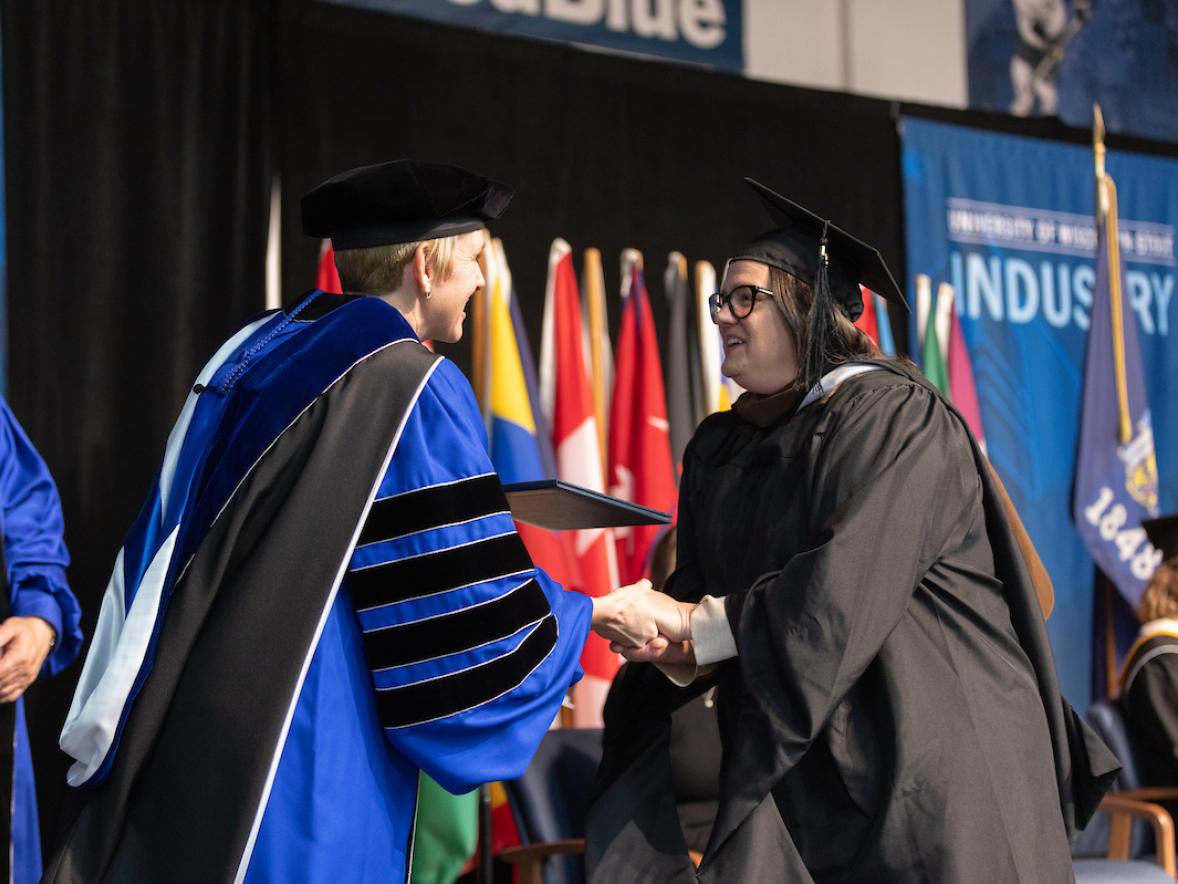In a normal teaching situation, University of Wisconsin-Stout Assistant Professor Brian Teague loves to move about a biology lab and check with students to gauge their progress.
“I cannot understate the importance, especially here at a student-focused polytechnic institution, of getting to know all of my students’ names and developing relationships with them,” Teague said.
But these aren’t normal times. With the COVID-19 pandemic and UW-Stout moving to alternative learning methods — no face-to-face instruction through the summer — professors have had to be creative, be resourceful and adapt.
Luckily for Teague, part of his Plan B already was part of his Plan A – videotaped lectures using a special kind of technology available on campus.
For the past year, Teague has taped from 60 to 70 segments of his lectures using Learning Glass. With it, professors use colorful markers on what’s basically a see-through “chalkboard.” They are on one side and face the camera, which is on the other side of the clear board. What they write and diagram is flipped, however, and readable for the viewer because a mirror is used during recording.

With Learning Glass, Teague’s students in his introduction to cell and molecular biology class, for example, will be able to feel like they can hear and see their professor talking directly to them.
“The idea that students are watching my face and my expressions instead of just my back is great. It’s more conversational. My teaching style is much more talk and scribble on a white board than, say, PowerPoint-based. I was really excited to have access to something like this,” Teague said.
Because of his familiarity with using Learning Glass, Teague has offered to help other professors adapt to the alternative learning scenario the next two months. The year-old Learning Glass video studio in Jarvis Hall is UW-Stout’s second.
The first one was built in 2016-17 in Sorensen Hall by Stout Online and the Discovery Center Fab Lab. It has been updated and redesigned and is currently supported by the Learning Technology Services team from Learning and Information Technology.
 “I’m happy to walk people through it and share tips and tricks. I’m happy that we have it and do hope people use it,” Teague said.
“I’m happy to walk people through it and share tips and tricks. I’m happy that we have it and do hope people use it,” Teague said.
To see one of Teague’s Learning Glass lectures, go here.
Renee Howarton, director of UW-Stout’s Nakatani Teaching and Learning Center, called Learning Glass an innovative technology. “It allows the instructor to visually demonstrate information on the glass board while still showing his or her face. Students see teachers’ expressions and experience their enthusiasm for the subject matter. It’s a technology that makes learning come alive,” Howarton said.
The video studio is self-operated. Professors schedule a session, turn on the lights and equipment, record their video and upload it to their teaching software platforms.
The benefits of Learning Glass
Videotaped lectures have several benefits, Teague said. Because the lectures are recorded in short segments, six to 10 minutes, students can watch them a little at a time, watch when it’s convenient for them or easily rewatch them. The videos also can be close-captioned for students with auditory challenges. The lectures can be reused for future classes, as Teague is doing this semester.
The benefits of Learning Glass aren’t meant to replace face-to-face instruction but actually enhance it, Teague said. Students are expected to watch the lectures as homework then come to class prepared to apply the lecture material and “develop thinking skills,” Teague said.
While Teague appreciates Learning Glass as a timely teaching aid, he acknowledges that the central challenge with the pandemic restrictions is “how can we keep learning together as a community now that we’re not in the same space anymore.”
Teague, who is in his second academic year at UW-Stout, has a Ph.D. in cell and molecular biology from UW-Madison and a bachelor’s degree in biochemistry and computer science from Rice University in Houston, Texas.
For more information about how UW-Stout is responding to the COVID-19 challenges, go here.
###
Photos
Brian Teague, an assistant professor of biology, is videotaped while giving a lecture using Learning Glass, a university teaching aid.
Brian Teague






